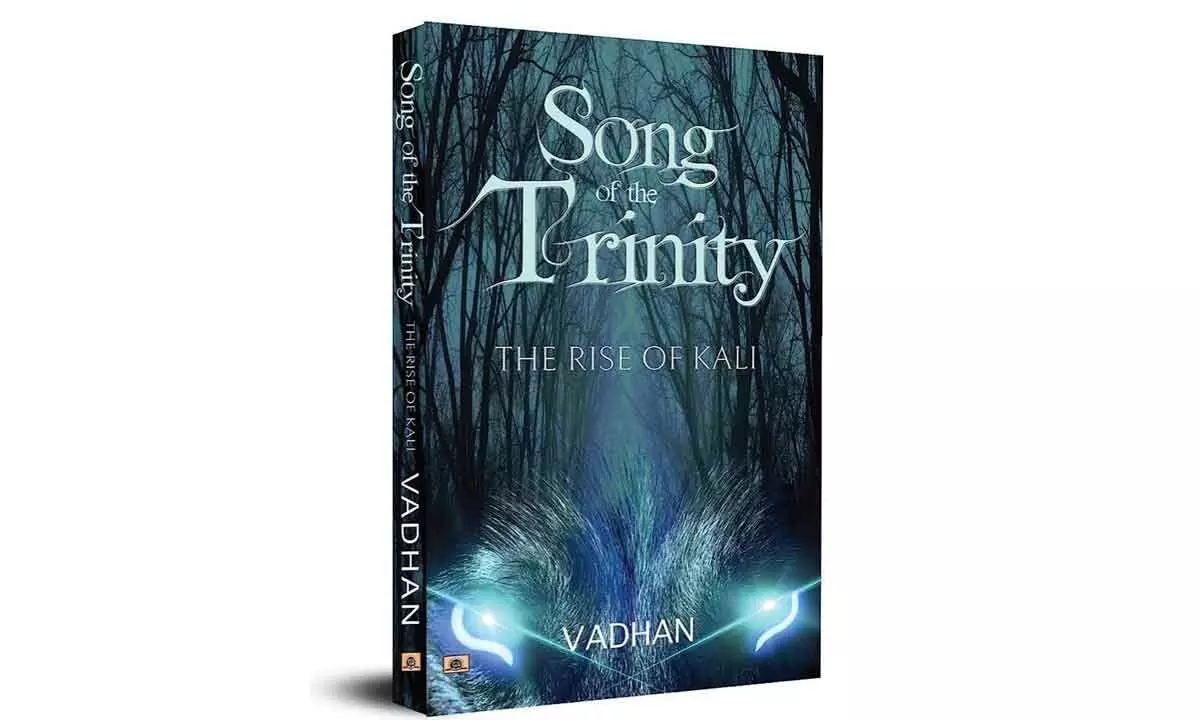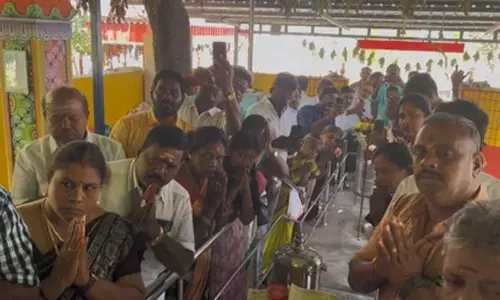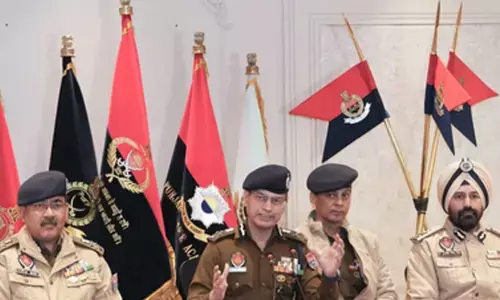Sublimity At its Best!

“Song of The Trinity: The Rise of Kali” has emerged as an ambitious and captivating work which dwells on mythology, history, and political intrigue with a highly thrilling narrative
Book details
Book: Song of The Trinity: The Rise of Kali
Author: Vadhan
Publisher: Prabhat Prakashan
Price: Rs 248
“Song of the Trinity: The Rise of Kali” has been most elegantly crafted by Vadhan, a renowned Indian author. Vadhan has carved his niche in quality literature with his marvellous and breathtaking literary masterpieces. He is acknowledged today as one of India’s supremely sublime literary wits. “Song of The Trinity: The Rise of Kali” has emerged as an ambitious and captivating work that dwells on mythology, history, and political intrigue with a thrilling narrative.
As we flip through the pages of this literary classic, we get to know Kali’s loyal followers who exploit every crevice of weakness, plunging realms into disarray and creating a cacophony. An absolute sense of despondency and darkness prevails in every nook and cranny as the very foundations of existence crumble and worlds are laid to waste, villains reborn, and gods and mortals alike have to bear witness to their own destruction. The author seems deeply inspired by John Milton’s Epic “The Paradise lost”. The annihilation and destruction, which he so artistically and aesthetically depicts in this work, instantly evoke the memories of the most significant battle scenes from “The Paradise Lost” and how, in the wake of the horrendous war between the forces of Good and Evil, the ‘mighty’ evil has to languish in the dark dungeons of bottomless hell, perpetually doomed to perdition. An impending sense of doom and gloom begins to gnaw at the readers’ tender hearts, which consequently casts a pall of fathomless despair over all who dare to dream of survival. Reading these segments of the book, one is instantly reminded of the world of Thomas Hardly, where utter dejection rules the roost in which there is no space even for a speck of hope. Then comes a catalytic moment and a complete volt-face as in the face of several befuddling odds, a ray of hope is seen with a sense of great gratification.
From the deep shadows emerges a band of extraordinary individuals bound by fate and tormented by their curses. A cursed warrior, a unique demi-god, rises to the occasion, defying the entropic forces that otherwise pose a mighty threat to devour all. These individuals are the embodiments of powers as they muster up the courage to stand between the unspeakable evil and the universe’s existence. The members of this group, who take up cudgels, also personify the very idea of immense bravery, intense resilience, and indomitable spirit. From the cursed warrior burdened by an ancient curse to the enigmatic Demi-God possessing extraordinary abilities, the fiery sage driven by an unrelenting rage, and the extraterrestrial orphan thrown into an unfamiliar world, these characters form an unlikely but formidable alliance against the impending darkness. When we view the character construction through the spectacles of the great Greek Master Aristotle, we experience a great sense of satisfaction, as the author has maintained all the set standards about the art of characterization of an Epic.
Here, the fact cannot be refuted that the author has a commendable knack for the remarkable use of imagery. Such is the profundity of his images that readers feel as if they have been transported into a new realm; standing, they can witness the spectacle of the devastation of great magnitude where the villains are getting resurrected like a mythical bird of Phoenix who rises from his ashes. Imagism is, thus, one such literary device, the dexterous use of which enables the author to establish a strong chord with the readers and Vadhan, in this context, also deserves a plethora of admiration.
While deliberating on the language of a literary classic, Mathew Arnold is quite pertinently of the opinion that a sublime theme can only be expressed satisfactorily in an equally sublime language. Indubitably, the author seems in absolute agreement with Mathew Arnold as the language he chooses to unfold the various aspects of this extremely engaging narrative reveals the linguistic competence of its creator. The selection of morphological items, stylistics and diction is superbly splendiferous. Shorn of all the complexities of a pedantic scholar, each line exudes like a sounding cataract directly from the author’s heart. On top of it, flawless collocations and constructions elevate the book to the lofty stature of a great modern literary classic that is bound to tickle the fancy of all segments of the readers.
(The writer is an Internationally renowned literary critic who has reviewed more than 200 books for the best of Newspapers, Magazines and Journals)














